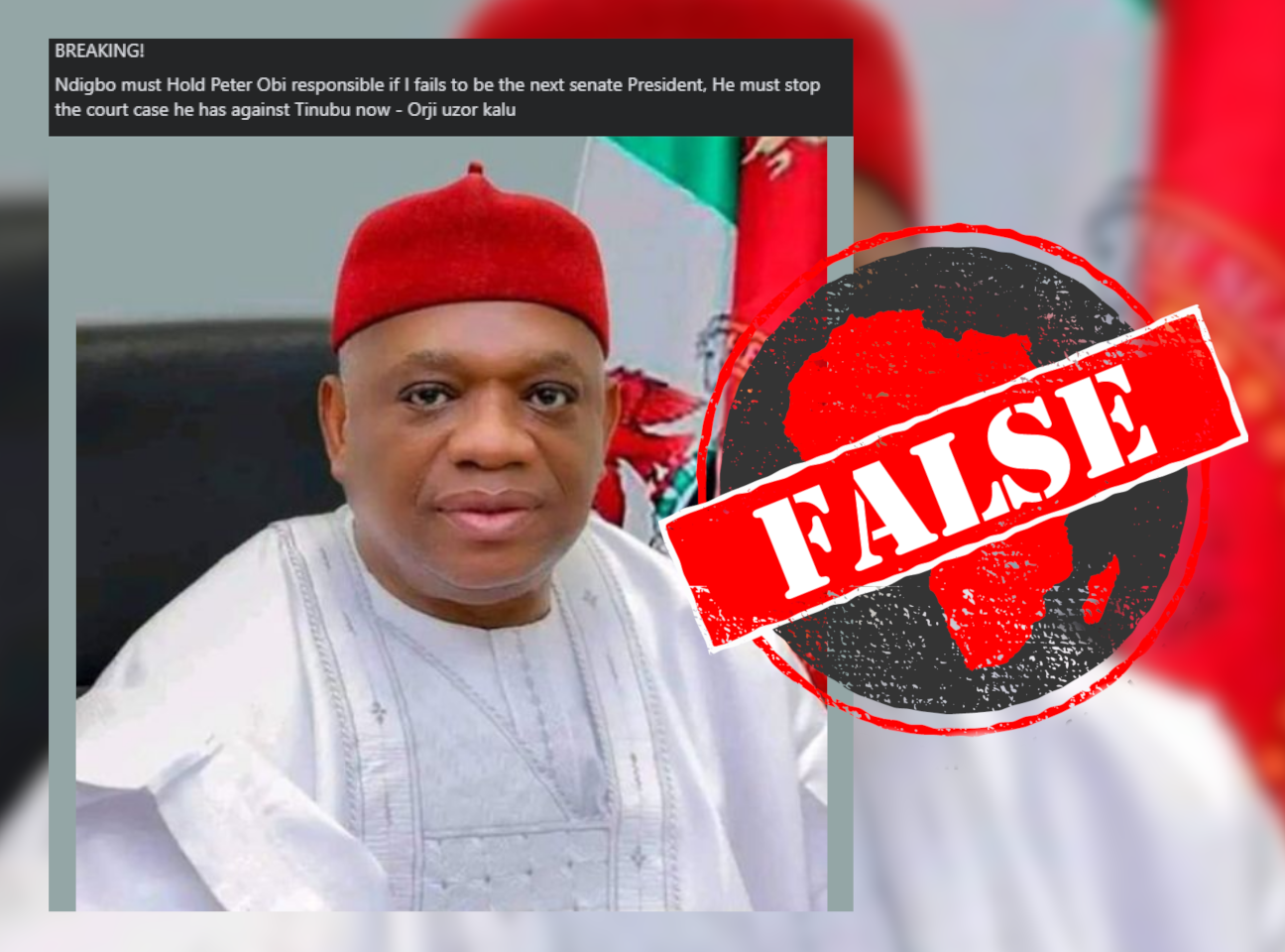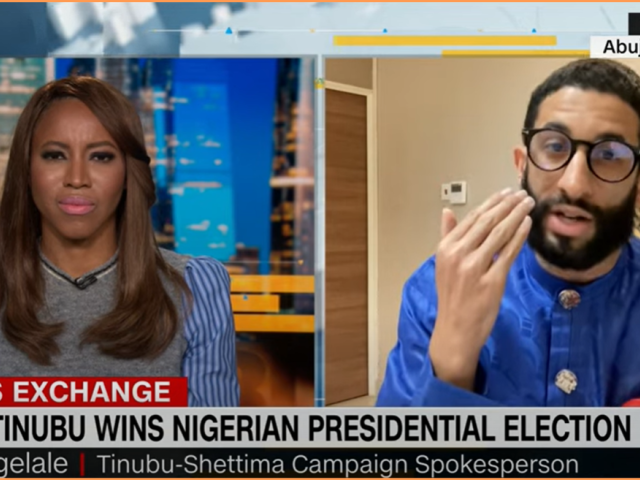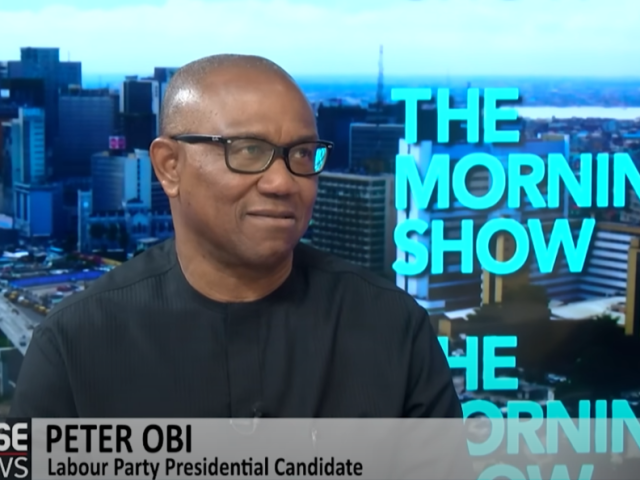IN SHORT: As Nigerian presidential candidate Peter Obi challenges the 2023 presidential election result in court, the spotlight is on the political race to lead the senate. But a quote attributed to one of the contenders on social media has been made up.
Peter Obi’s legal challenge to the presidential election race in Nigeria could sabotage the chances of one of the candidates for the senate presidency. Or so claims a quote circulating on Facebook.
“BREAKING! Ndigbo must Hold Peter Obi responsible if I fails to be the next senate President, He must stop the court case he has against Tinubu now – Orji Uzor Kalu,” reads one post.
Orji Uzor Kalu is a former governor of the southeastern state of Abia and the chief whip of the Nigerian senate, the upper house of the national assembly. He is a member of the governing All Progressives Congress (APC).
Obi came third in the February 2023 election won by the APC’s Bola Tinubu, but has gone to court to challenge the result.
“Ndigbo” refers to the Igbo people of the southeastern geopolitical zone of Nigeria. Both Obi and Kalu are Igbo from here.
Kalu is vying to become the next senate president when the new national assembly is inaugurated in June.
There have been arguments that the next leader of the senate should come from the southeast. However, senators from other zones are also in the running.
All the candidates are seeking the endorsement of president-elect Tinubu, who is from the southwest geopolitical zone. Historically, the president’s endorsement is decisive in the race for the senate presidency.
The claim quoting Kalu also appears here, here, here, here, here, here, here, here, here and here.
But did Kalu say Obi’s legal challenge to Tinubu’s victory would sabotage his own chances? We checked.

The senator debunks the claim
Given the media interest in the senatorial presidency race and Obi’s popularity, it is unlikely that such a statement would go unreported. However, we found no coverage of this in credible media.
Kalu himself debunked the claim in a post on his verified Facebook page, saying the claim was meant to hurt his reputation.
“Please disregard all the fakes news against my person. It’s all targeted to tarnish my image,” the 28 March post reads.
Republish our content for free
For publishers: what to do if your post is rated false
A fact-checker has rated your Facebook or Instagram post as “false”, “altered”, “partly false” or “missing context”. This could have serious consequences. What do you do?
Click on our guide for the steps you should follow.
Publishers guideAfrica Check teams up with Facebook
Africa Check is a partner in Meta's third-party fact-checking programme to help stop the spread of false information on social media.
The content we rate as “false” will be downgraded on Facebook and Instagram. This means fewer people will see it.
You can also help identify false information on Facebook. This guide explains how.




Add new comment